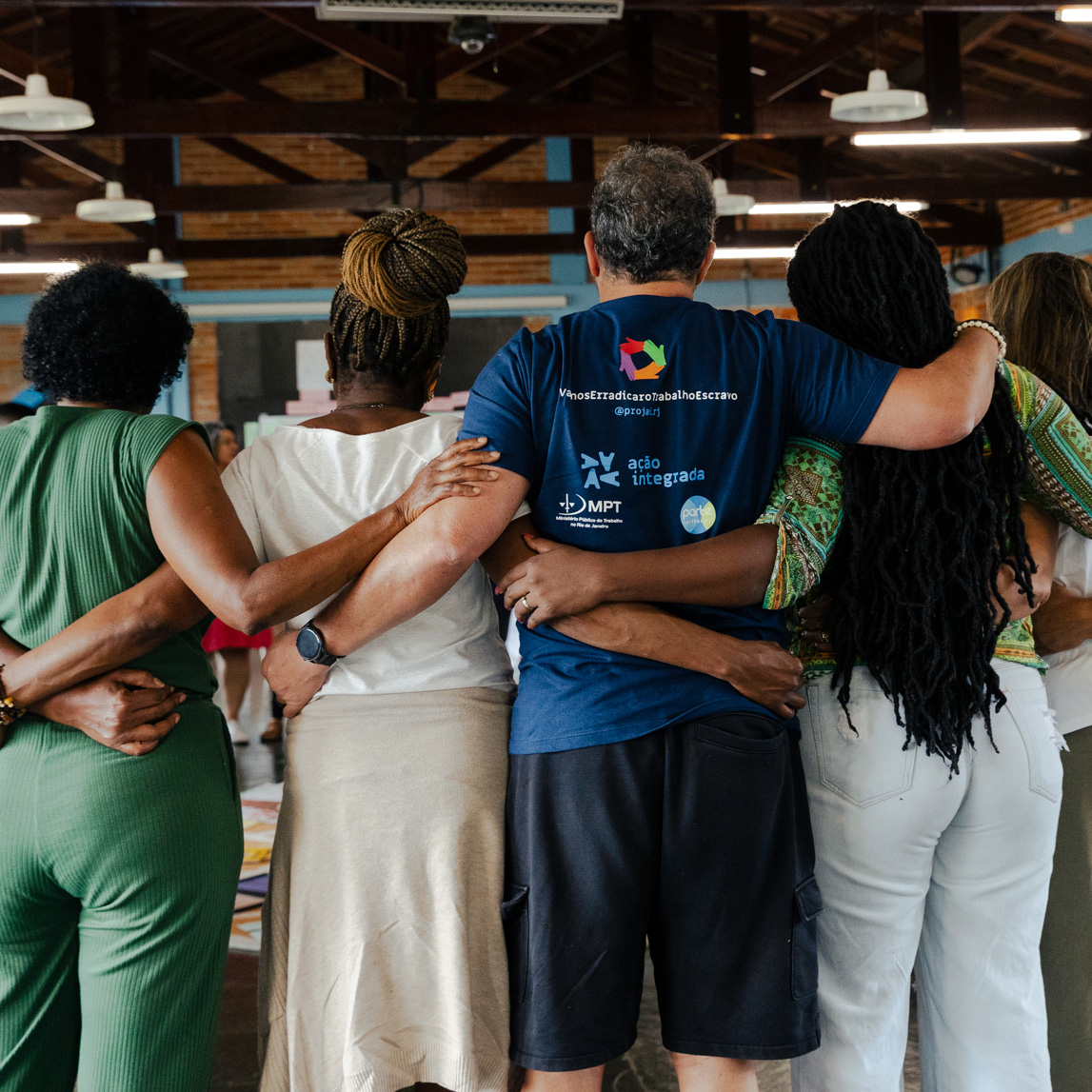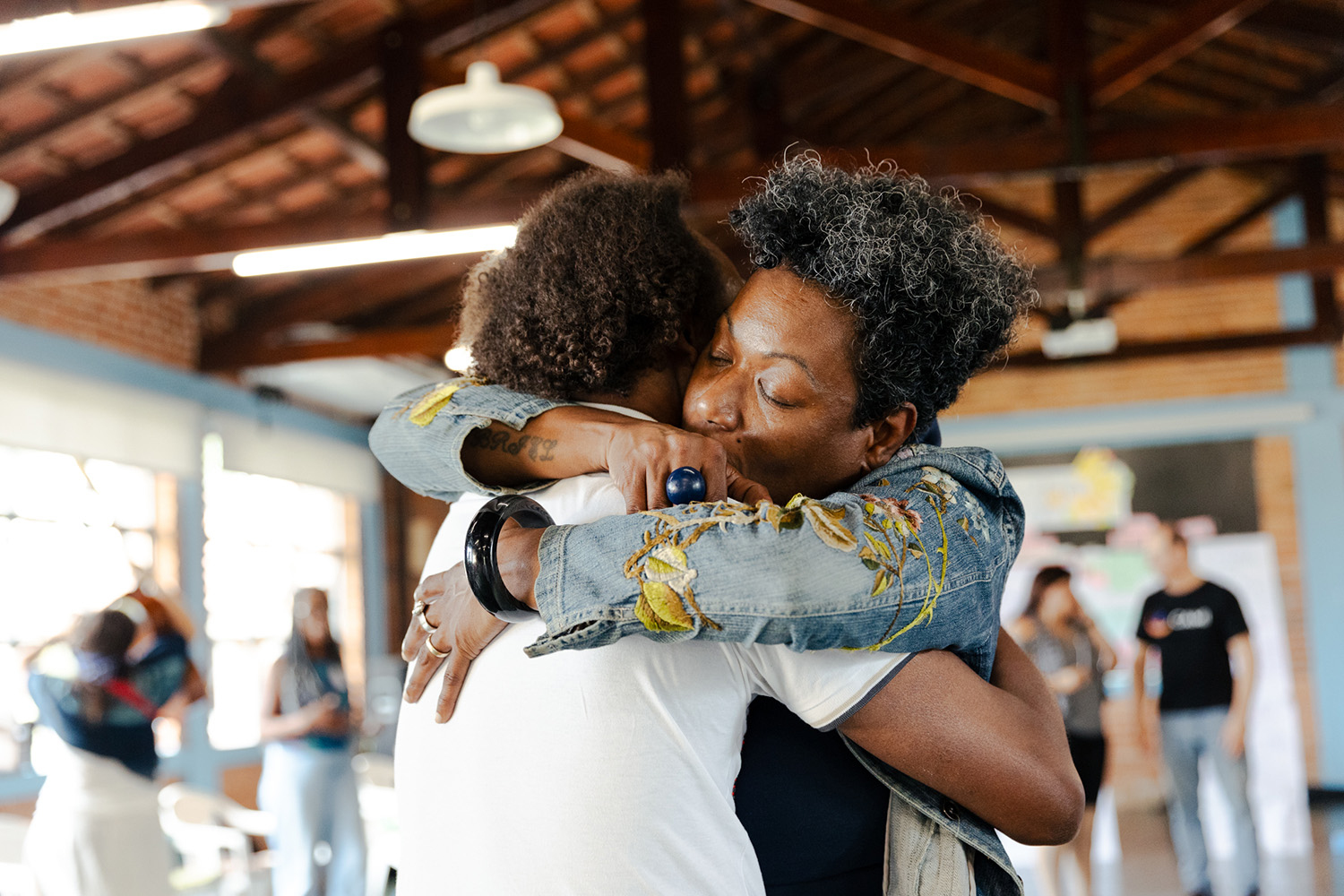
Our impact
2024-2025
Letter from our CEO
For those of us working to protect human rights, it is easy to feel a sense of fear and hopelessness at the current state of the world. Cuts to both public and private funding and rising authoritarianism have destabilised many civil society groups. In the anti-slavery field, despite significant advances in research, promising supply chain policies and the tireless advocacy of survivor leaders, public attention seems to be waning. Interconnected crises – climate change, conflict and forced migration – are making already marginalised populations even more vulnerable to exploitation.
But even as these challenges mount, frontline organisations don’t back down. Our partners – led by courageous survivors, community members and activists – remain committed to supporting those facing marginalisation and finding creative ways to tackle what often feel like intractable systems of exploitation.
The Freedom Fund works globally to dismantle the systems that drive modern slavery. Since our founding, we have partnered with 288 frontline organisations to impact the lives of over 1.6 million people. We estimate that these global, regional, national and local efforts have resulted in greater resistance to slavery and trafficking for over ten million people. In this year’s annual report, we highlight key stories that illustrate this global impact by focusing on our country and partner-level work.
Every day, our frontline partners demonstrate what it means to show up for their communities. Last March, I met with the leaders of five survivor-led organisations in Ethiopia who are changing the conversation about safer migration and advocating for greater support for survivors of trafficking. During that same trip, I visited Kenya and saw first-hand how partners are helping bring child domestic workers out of the shadows, pushing for stronger legal protections and providing safety and education to those who have experienced trafficking and abuse.
Inspired by our partners’ dedication, we are renewing our commitment to show up for them through funding, convening and support.
Following a year of reflection and consultation, we launched a new multi-year strategy sharply focused on investing in frontline anti-slavery organisations and movements, fostering systems change and serving as a valued funding partner. In order to get even more resources to community-led organisations, we will lean into our role as a funder, prioritise flexible support and create more space for partners to lead. We have set ambitious goals: by the end of 2030, we will have strengthened the organisational development of at least 500 frontline partners, including 200 survivor-led organisations, and enabled 20 million people to live in communities with improved resistance to modern slavery.
We are able to set these bold objectives thanks to the consistent and unwavering support of our visionary founders and donors. Their steadfast belief in our mission has shaped everything we’ve built, and we are deeply grateful for their trust and commitment.
Our frontline partners are our inspiration, and their vision of a world free of exploitation – a world in which communities are not only liberated but thriving – deeply informs ours. Together with donors and allies, we are fueling dynamic, sustainable community-led movements that can bring an end to modern slavery.
Join us in making this vision a reality.
Nick Grono
CEO, The Freedom Fund

Hotspot snapshot
Survivors forging their own path to freedom
This is a story of resilience, of women who refuse to be defined by their past, and of a future where they stand tall as changemakers in their communities.
~ Linzy Otieno, Program Officer, WE REACH
For years, economic hardships have forced young girls in Kenya into exploitative domestic work, trapping them in cycles of underpayment, long working hours and harsh employed conditions. But now, survivors are turning the tide – not as victims but as leaders of their own futures.
Supported by the Freedom Fund’s Not Invisible Anymore program, our partner WE REACH helped survivors form a network to share experiences, find encouragement and build a collective voice. Together they have created savings and loan groups, allowing survivors to pool resources, invest in small businesses and step confidently into financial independence.
The network received a small grant from the Freedom Fund and used that to provide trainings on digital and tailoring skills at a new resource learning centre. They have also taken bold steps into agribusiness, with survivors mastering poultry farming and animal care, as well as establishing a thriving traditional vegetable farm.
“These women have proven their strength. They have built a network, launched businesses, and claimed their place as leaders in their communities. They are no longer just surviving - they are thriving.”

Bonded labour
In Nepal, our partners played a crucial role in supporting advocacy efforts that led to Nepal’s federal government prioritising landless Kamaiya, Haliya, Kamalari and Harawa-Charawa within the Land Commission distribution criteria. They have enhanced the resilience of communities affected by bonded labour through direct services, facilitating access to citizenship certificates and birth registration for children.
Our partners successfully enrolled 3,503 children from Kamaiya, Haliya and Harawa-Charawa families into school and supported 24 tuition centres in their working areas to provide academic support for children who still face discrimination in schools. This year, 3,528 people from Kamaiya, Haliya and Harawa-Charawa communities received support to generate an alternative income through joint farming, small grocery shops, food stalls and livestock rearing.
Following sustained advocacy by our partner the Harawa-Charawa Rights Forum, the provincial government passed a guideline to identify eligible Harawa-Charawa households for support packages – a key step in the rehabilitation process.
Forced labour
In Bitung, Indonesia, our partner – a survivor-led fisher union – secured an agreement from the mayor to establish an official committee to improve workers’ wages. In Central Java, Indonesia, the provincial government passed a law to improve its response to trafficking following two years of advocacy by a Freedom Fund partner.
The government of Taiwan approved a Wi-Fi policy for fishing vessels in response to partner advocacy. Provision of Wi-Fi on vessels has been a long-term demand across the sector as it reduces workers’ isolation and vulnerability to exploitation.
Our partners in the Brazilian Amazon identified a large illegal deforestation operation and worked with river-dwelling communities to support 50 workers to leave exploitative working conditions. Mobilisation of communities in the Amazon has led to 229 individuals accessing legal or social services. Engagement with public officials has led to 53 improvements in public policies.
Safer migration
Our partner in Ethiopia recorded a 35% decrease in the dropout rate from schools that ran anti-trafficking clubs in the last two academic years. Dropouts were determined to be a proxy indicator for irregular migration in many of the communities where they work.
In 2024, partners supported 7,624 people in accessing social and legal services, including microfinance support. Returnee associations in Amhara organised to advise the local government on reintegration of survivors, enabling 33 women to access loans. They also advocated to provide space for more than 50 businesses. Two survivor-led associations successfully worked with their local Labour and Skills Department to provide urgent support for returnees, resulting in 12 returnees receiving social and economic assistance.
A Kuwait-based Ethiopian workers group, funded by the Freedom Fund, received 1,230 calls through its support hotline and opened 440 new cases, with 72% of the cases successfully resolved. Almost 40% of those cases were in relation to labour cases and unpaid salaries.
In Kenya, a recipient of a Survivor Leadership grant won a groundbreaking legal case on behalf of a survivor who was recruited into abusive domestic work in Saudi Arabia. The court determined that her rights had been severely violated by the recruiters and she was awarded US $30,000 in compensation. This case is the first of its kind in Kenya and sets a significant legal precedent.
Commercial sexual exploitation of children
This year saw the first conviction of a trafficker of child domestic workers (CDWs) in Ethiopia, further heightening awareness of the issue. Following the development of a “victim of trafficking assessment tool” to collect evidence about trafficking, our partner supported the prosecution of the trafficker of a 12-year-old child under Ethiopia’s Human Trafficking Proclamation.
In Kenya, our partners worked with the transport minister and transport workers to identify at-risk and unaccompanied children at bus depots. All depots have now implemented a focal person for children’s issues and 910 children have since been identified.
The Kenyan government has pledged to establish child labour committees in all 47 counties, with 11 already operational. Our partners actively participated in these committees, ensuring that child domestic work remains a key issue in broader child protection discussions.
In Kenya, 183 individuals – including survivors of child domestic work – gained access to government services, including family reintegration and enrolment in the national medical insurance scheme, birth certificate registration and school bursaries. Eighty-four previously out-of-school children were enrolled in formal or non-formal education, and 17 legal cases received direct legal support, benefiting both child and adult domestic workers who had experienced exploitation.
Following a successful inception year in West Africa, we launched our Nigeria hotspot in January 2025. We will be working closely with our seven civil society partners in Lagos to protect CDWs from exploitation.
Hotspot highlights
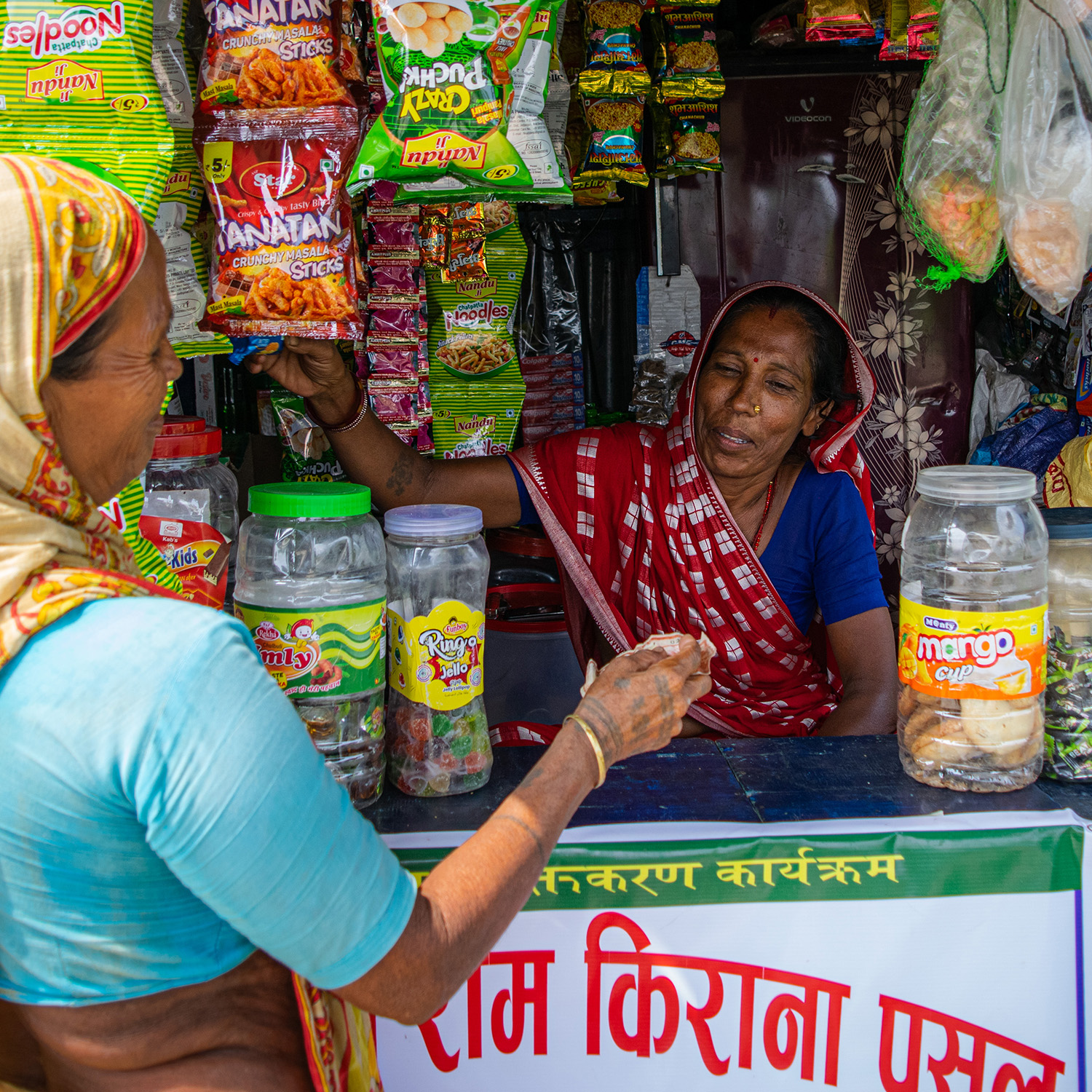
Responsible supply chains
To strengthen accountability for forced labour in global supply chains, we launched the Ecosystem Program Seed Fund, providing a total of US $200,000 in seed funding to 14 frontline organisations across Cambodia, Indonesia, Malaysia, the Philippines, Taiwan and Thailand.
Members of the Coalition Against Forced Labour in Trade (CAFLT) – a global network of civil society organisations founded by the Freedom Fund and the Human Trafficking Legal Center – had their first in-person meeting in Mexico City, where members developed a strategic roadmap for the next phase of their work. CAFLT has played a pivotal role in influencing forced labour import ban policy developments across multiple jurisdictions, including the EU, Canada and Mexico. Our grantees were also instrumental in securing the successful passage of the EU Forced Labour Regulation, which will prohibit products made with forced labour from being sold in the European Union.
To mark the publication of our report, The impact of strategic human rights litigation on corporate behaviour, we hosted an in-person launch event in Geneva and led two webinars for Global South stakeholders. Each webinar focused on key findings, delivered by the report’s authors – Professor Surya Deva, Professor Justine Nolan and Dr Ebony Birchall – followed by an interactive Q&A session, fostering diverse engagement with the report’s findings.
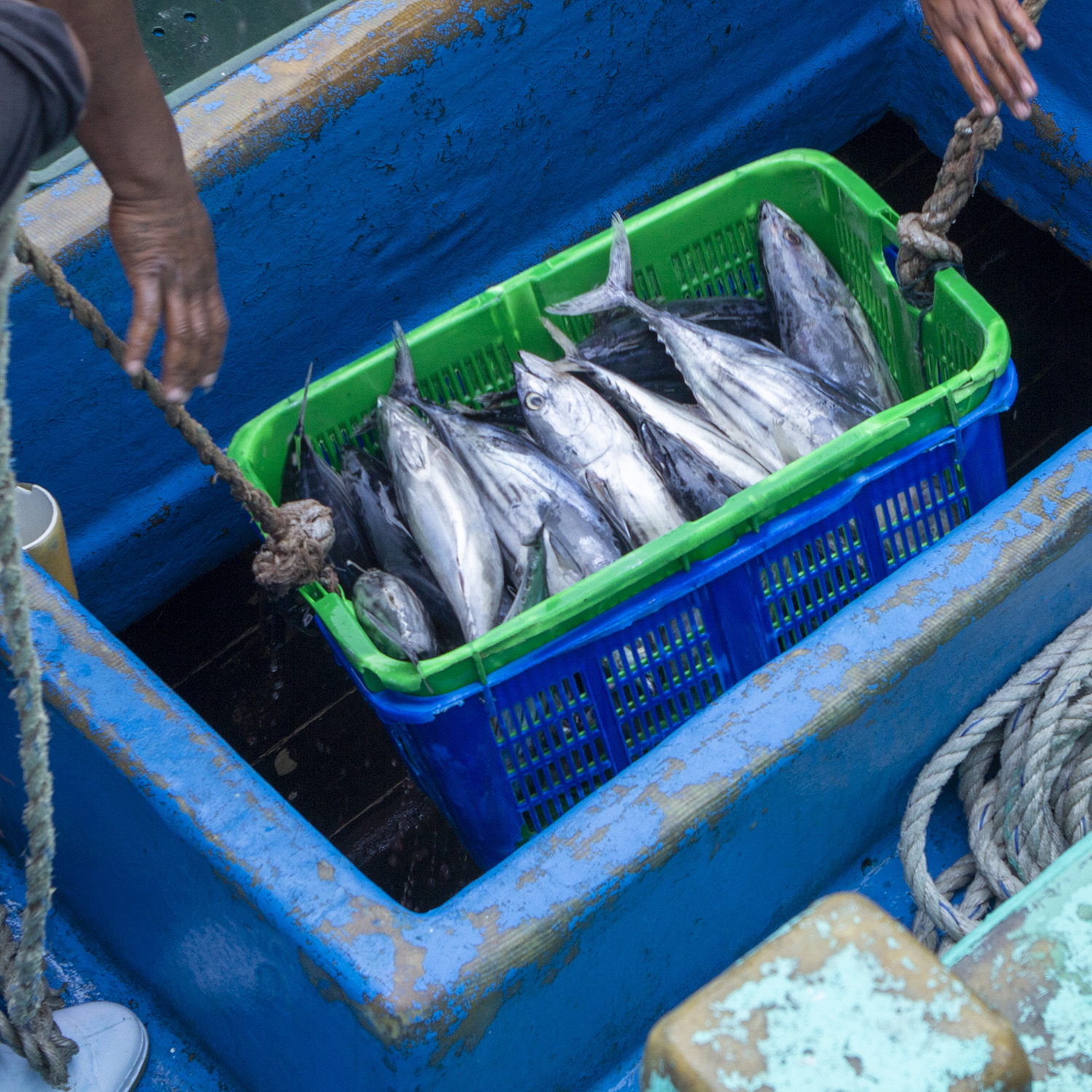
Our work in Myanmar comes to a close
Since 2020, we’ve worked alongside frontline organisations in Myanmar to address the increased threat of exploitation and forced marriage among vulnerable populations. Since the start of the current political crisis in Myanmar, only a few organisations were able to remain in the country to continue this crucial work. Freedom Fund grants and strategic assistance came at a critical moment, and supported a fragile civil society and communities navigating an extremely challenging context that allows exploitation to thrive.
~ Hannah de Ville, Senior Program Manager, The Freedom Fund
For many years, women and girls in Myanmar, especially in the more remote regions of the country, have been vulnerable to human trafficking and exploitation, including sex trafficking, forced marriage and forced labour. Chronic political instability and limited livelihood options pushed many to migrate in pursuit of a better life, leaving them open to exploitation.
We launched our hotspot in 2020 to address trafficking of women from Myanmar to China for forced marriage and childbearing. Unfortunately, vulnerabilities of communities at risk of human trafficking were further exacerbated shortly after the program’s launch, first by the COVID-19 pandemic and then the 2021 military takeover of the civilian government.
Despite an extremely challenging operating environment, we worked alongside civil society partners for five years to address extreme forms of exploitation and human trafficking, especially among women and girls, in areas with the highest registered cases. Our partners focused on filling a service provision gap for survivors, supporting community-level mechanisms to respond to and prevent human trafficking, and ensuring that anti-trafficking efforts continue to receive attention and are integrated into the larger humanitarian response. By establishing community-level networks and mechanisms, they were able to maintain a presence even when security concerns prevented access.
In early 2025, the Myanmar hotspot program came to a close, but the incredible work by our partners in communities affected by conflict, extreme poverty and exploitation has impacted thousands of lives, strengthening community resilience and supporting survivors who have faced and left situations of exploitation.

The Freedom Fund and Ignited Word released a study using social network analysis – analysing patterns of relationships among people in groups – to empirically measure and assess the network of Brazilian leaders who took part in the Freedom Fund’s transformative leadership program Freedom Rising, including the nature and strength of relationships between individuals and organisations. Baseline findings, gathered at the start of the initiative, highlighted that survivor leaders were more isolated and less integrated into the broader network. More than 25% of survivors have no connection to other survivors, and survivors have half the number of connections of non-survivors. Additionally, fewer survivors are seen as influential or as leaders within the network.
We produced the report Behind closed doors: Measuring the scale and nature of exploitative child domestic work in Nigeria with NORC at the University of Chicago, funded by the US Department of State’s Office to Combat and Monitor Trafficking in Persons. Key findings indicate that many CDWs face abusive conditions, with 88.9% encountering labour law violations and 96.7% experiencing labour exploitation. Recommendations include strengthening protective legislation, improving access to education and vocational training, raising awareness of available resources and fostering community support networks to empower CDWs. Collaboration among governmental, civil society and multilateral organisations is vital to address these issues effectively.
No identity, no protection
The Freedom Fund, in collaboration with the United Nations University Centre for Policy Research (UNU-CPR), published a new investigative report, No identity, no protection, revealing extensive evidence of the connections between a lack of documentation and a heightened risk of trafficking and modern slavery.
The research drew on direct insights from more than 170 experts, including UN actors, national officials, local service providers and people from slavery-affected communities in Brazil, Kenya and Nepal. Their testimonies underscore the profound challenges faced by individuals without official documents.
People who lack legal recognition by governments, such as migrants, stateless minorities and those affected by discriminatory nationality laws, constitute a large group without access to essential documentation. Even where access is theoretically possible, respondents suggested that local-level practical challenges existed, such as bureaucratic inefficiencies, corruption, financial costs and discriminatory practices.
Without documentation, people are routinely denied essential services, such as healthcare, education and financial systems – perpetuating cycles of marginalisation, poverty and exploitation.
This report, which centred on the wisdom of vulnerable populations, made a new contribution to the anti-trafficking field with concrete findings and actionable recommendations at both country and global levels.
Publications supported
Research highlights
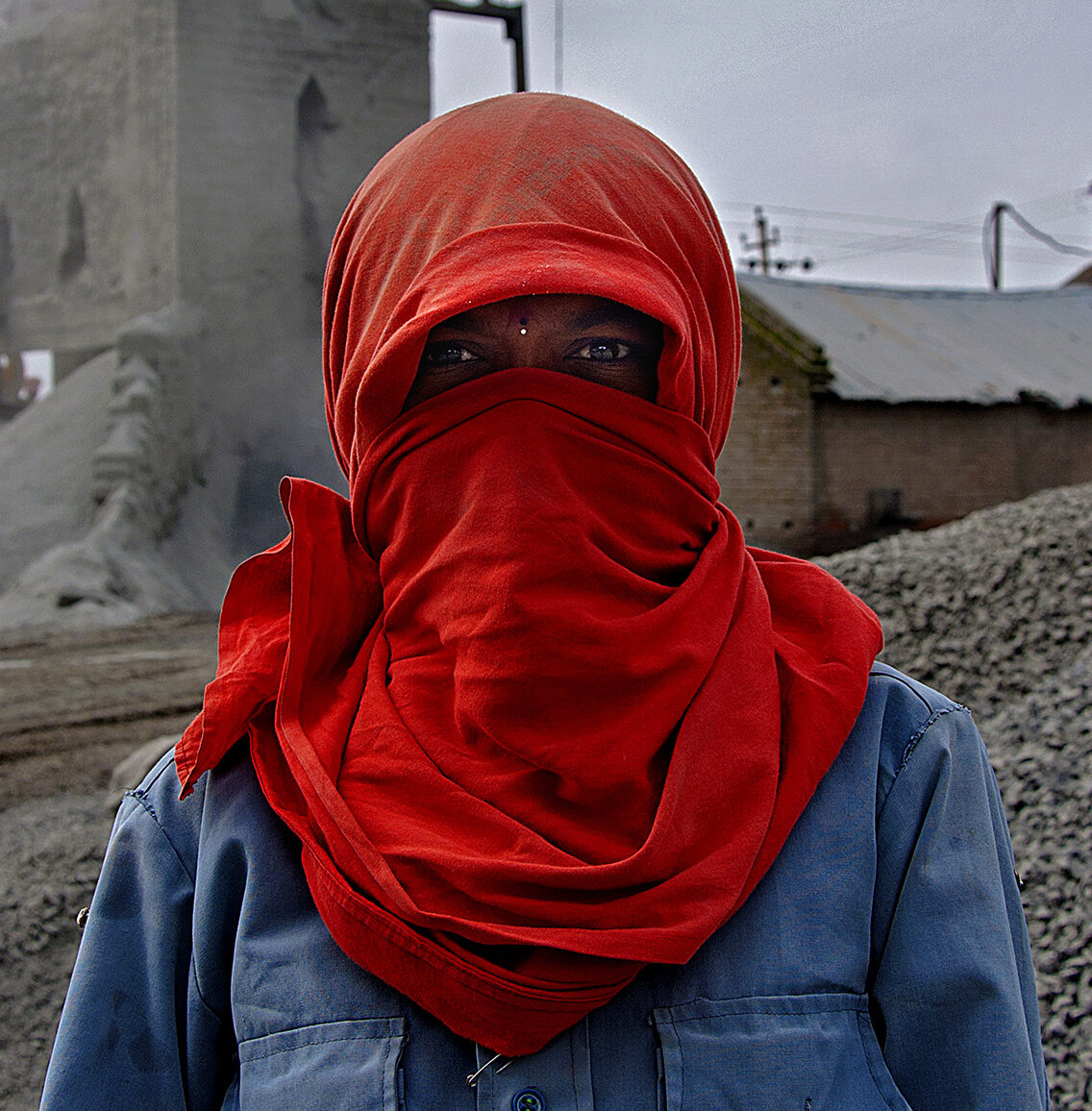
Freedom of expression
The Freedom Fund launched the survivor-led art exhibition, Freedom of Expression, to raise awareness of the realities of modern slavery. The exhibition featured art by survivors of, and communities vulnerable to, modern slavery abuses. The work highlighted the exploitation faced by young people in Bangladesh and Brazil.
To mark World Day Against Trafficking in Persons in July, the exhibition was displayed in London Bridge mainline train station for three weeks, reaching approximately 130,000 passengers daily.
The exhibition provided a platform for adolescent girls from the Metropolitan Region of Recife, Brazil, and Dhaka, Bangladesh, to raise awareness about the vulnerabilities they face every day in a new, creative and participatory way. The works demonstrated their desire for freedom, reflecting their dreams of a dignified, happy and violence-free life.
We’re grateful for the cooperation of our partners, Casa Menina Mulher, Centro de Mulheres do Cabo, Coletivo Mulher Vida, Instituto Aliança, INCIDIN, Karmojibi Kallayan Sangstha and Shapla Mohila Sangstha, for making this exhibition a success.
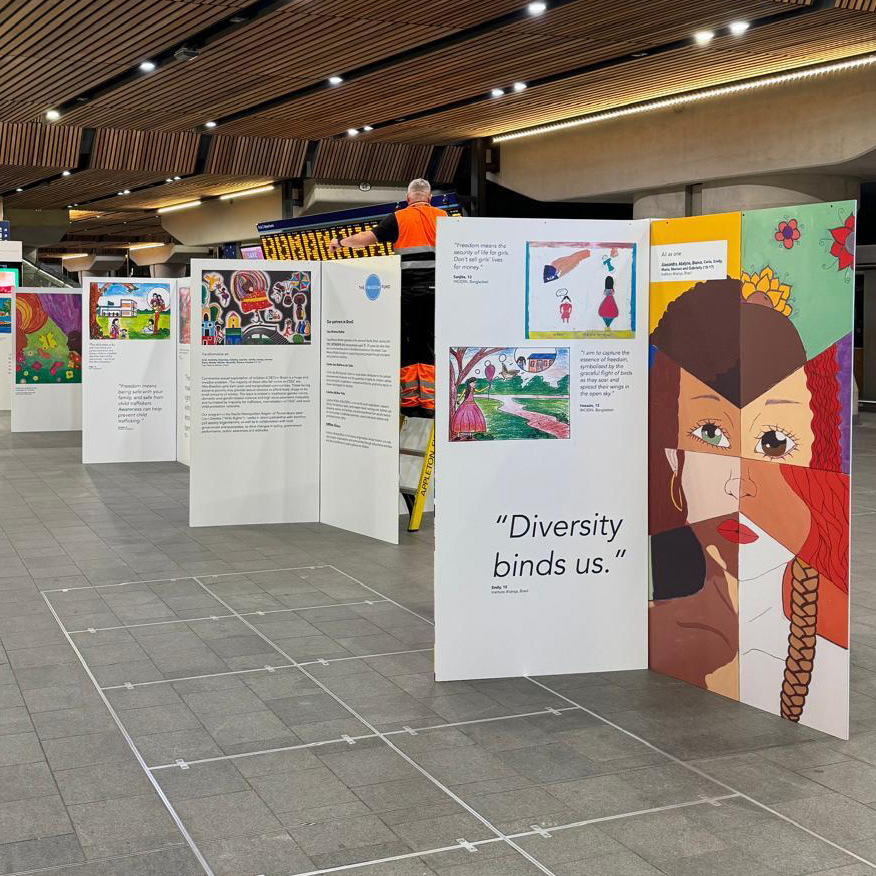
Our renewed commitment
In 2024, we commemorated a decade of collaborating to end modern slavery – celebrating the courageous efforts of our frontline partners while recognising the significant work ahead of us. It felt like an appropriate moment to reset and reimagine.
Over the course of a year, we consulted with more than 250 stakeholders – staff, board members, grantee partners, frontline leaders, lived-experience experts, donors and peer organisations – on how the Freedom Fund should move into our next phase.
The result is our 2025-2030 strategic plan, which outlines a set of ambitious objectives to guide us as we double down on investing in frontline anti-slavery organisations and movements, fostering systems change and serving as a valued funding partner. In order to get even more resources to frontline organisations, we will lean into our role as a funder, prioritise flexible funding and create more space for partners to lead.
Going forward, to better serve frontline organisations, we will prioritise multi-year, flexible funding, reduce unnecessary restrictions and engage donors who share our commitment to trust-based philanthropy. To support this strategic shift, we will bring staff closer to the communities we serve and streamline program integration and grantmaking.
We’ve spent a lot of time listening to and learning from our frontline partners, and one message is clear: steadfast support matters. For some frontline organisations impacted by US and other bilateral aid cuts, we are their only source of sustained funding. We recognise the profound trust they place in us. As the global funding landscape grows more uncertain and challenging, we are determined to stand with our partners.
Even as we serve frontline organisations, the Freedom Fund works for system-level change. We will also foster collaboration through communities of practice and invest in entire ecosystems of organisations – not just individual programs – to help build strong, sustainable movements. In the coming year, we will contribute to the field with research on best practices for evaluation and by investing in new research and multi-media storytelling about our partners’ impact.
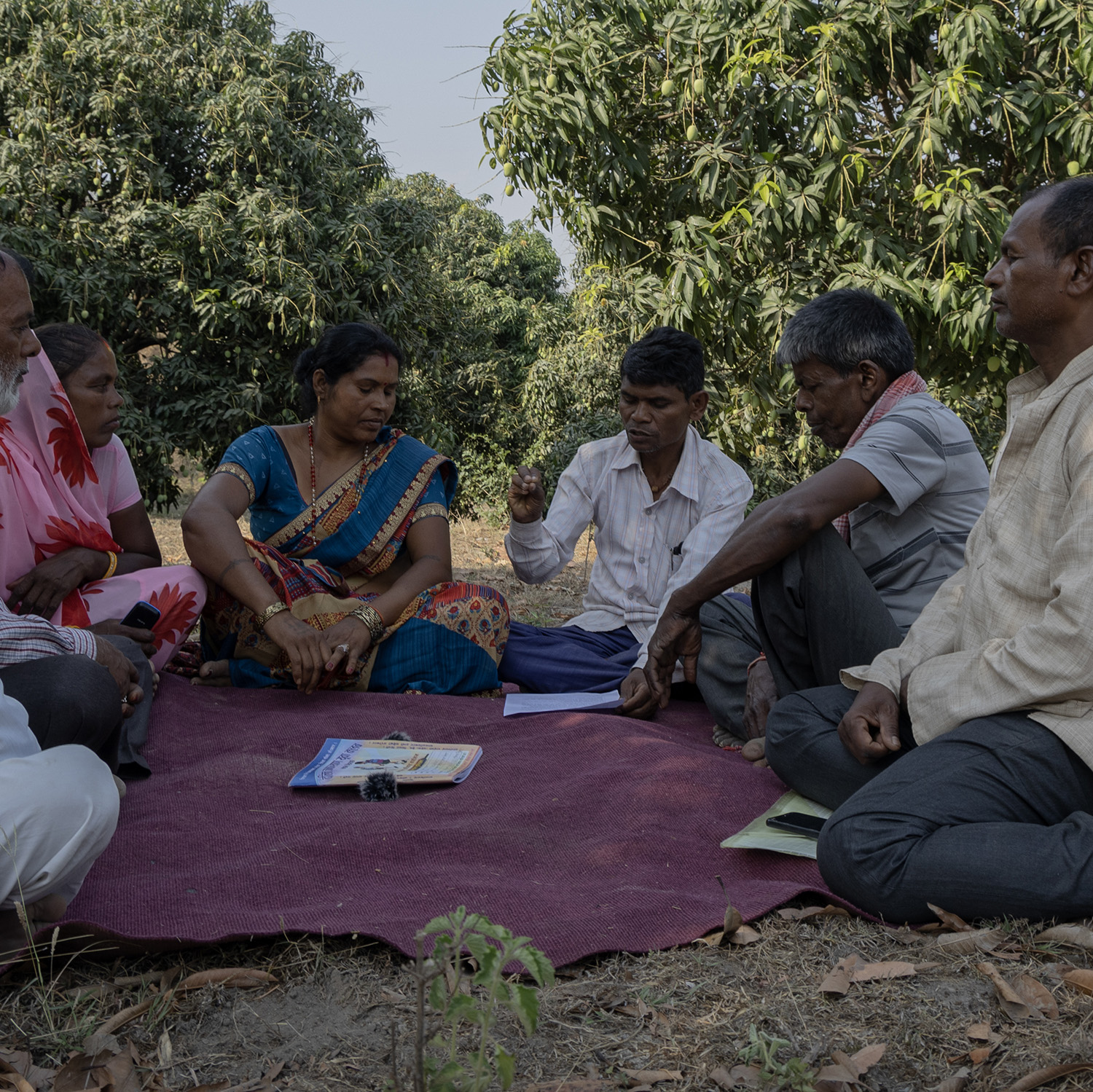
Supporters
We are grateful for the generous backing of all our investors and donors whose support allows us to strengthen frontline efforts to end modern slavery and build a more inclusive movement.
Founders
Key investors
Directors
Katherine Bryant – Director of Operations, Walk Free
Shruti Chandrasekhar – Head of Investments, Africa Region, IFC
Andrew Doust (Vice-chair) – Founder, Plenitude Partners
Molly Gochman (Chair) – Artist and Human Rights Activist, Stardust Fund
Mahendra Pandey (Vice-chair) – Director, Forced Labor and Human Trafficking Humanity United
Michelle Yue – Co-Founder, Beam Network



